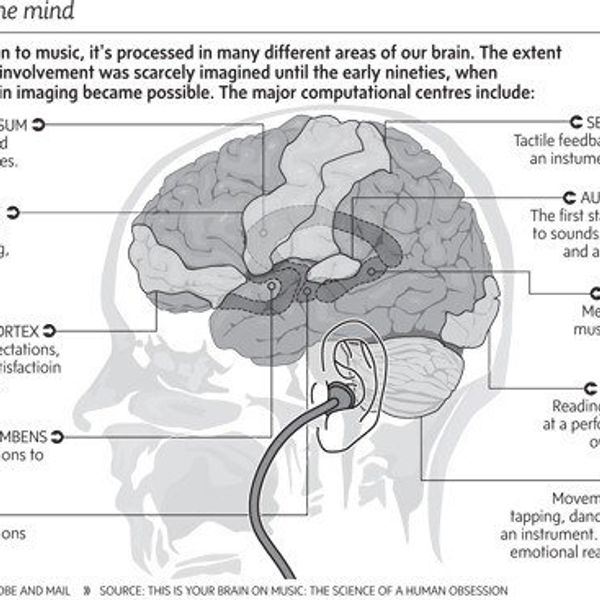Music is an art, entertainment, pleasure, and most importantly, a medicine for the soul and body. Music is one of the few activities that involves using the whole brain. It is intrinsic to all cultures and has surprising benefits. It helps with language, improving memory, and focusing attention, but also for physical coordination and development. But it could be misused. Music could be distracting if its too loud or too jarring.
1. Pain Relief
Overall music has a positive effect on pain management. Music can help reduce both the sensation and distress of both chronic pain and postoperative pain. Listening to music can reduce chronic pain from a range of painful conditions, including osteoarthritis, disc problems by up to 21%, and depression by up to 25%, according to a paper in the latest UK based Journal of Advanced Nursing. Music therapy is being used in hospitals at an increasing rate to reduce the need for medication during childbirth, to decrease postoperative pain, and complement the use of anesthesia during surgery. There are several theories about how music positively affects perceived pain.
2. Medicine for the heart
Music is good for your heart because it relaxes it. Research shows that it is musical temp, rather than style. Italian and British researchers recruited young men and women and made sure half of this group were trained musicians. The participants slipped on head phones and listened to six styles of music, including rap and classical pieces, with random two minute pauses. Researchers monitored their breathing, heart rates and blood pressure, as the participants kicked back and listened. The participants had faster heart and breathing rates when they listened to lively music. When the musical slowed, so did their heart rate and breathing rates. During the musical pauses, heart and breathing rates normalized or reached more optimal levels. Whether or not a person liked the style of music did not matter. The tempo, or pace, of the music had the greatest effect on relaxation. Chronic headaches and migraine remedy.
3. Music boosts immunity
This is surprising to many people, music can help migraines and chronic headaches. People that suffer through this reduce the intensity, frequency, and duration of headaches. Music can also boost the immune function. Scientists explain that a particular type of music can create a positive experience, which leads to secretion of immune-boosting hormones.
4. Music improves athletic performance
Choosing music that motivates you will make it easier to start moving, walking, dancing, or any other type of exercise that you enjoy. Music can make exercise feel more like recreation and less like work.























